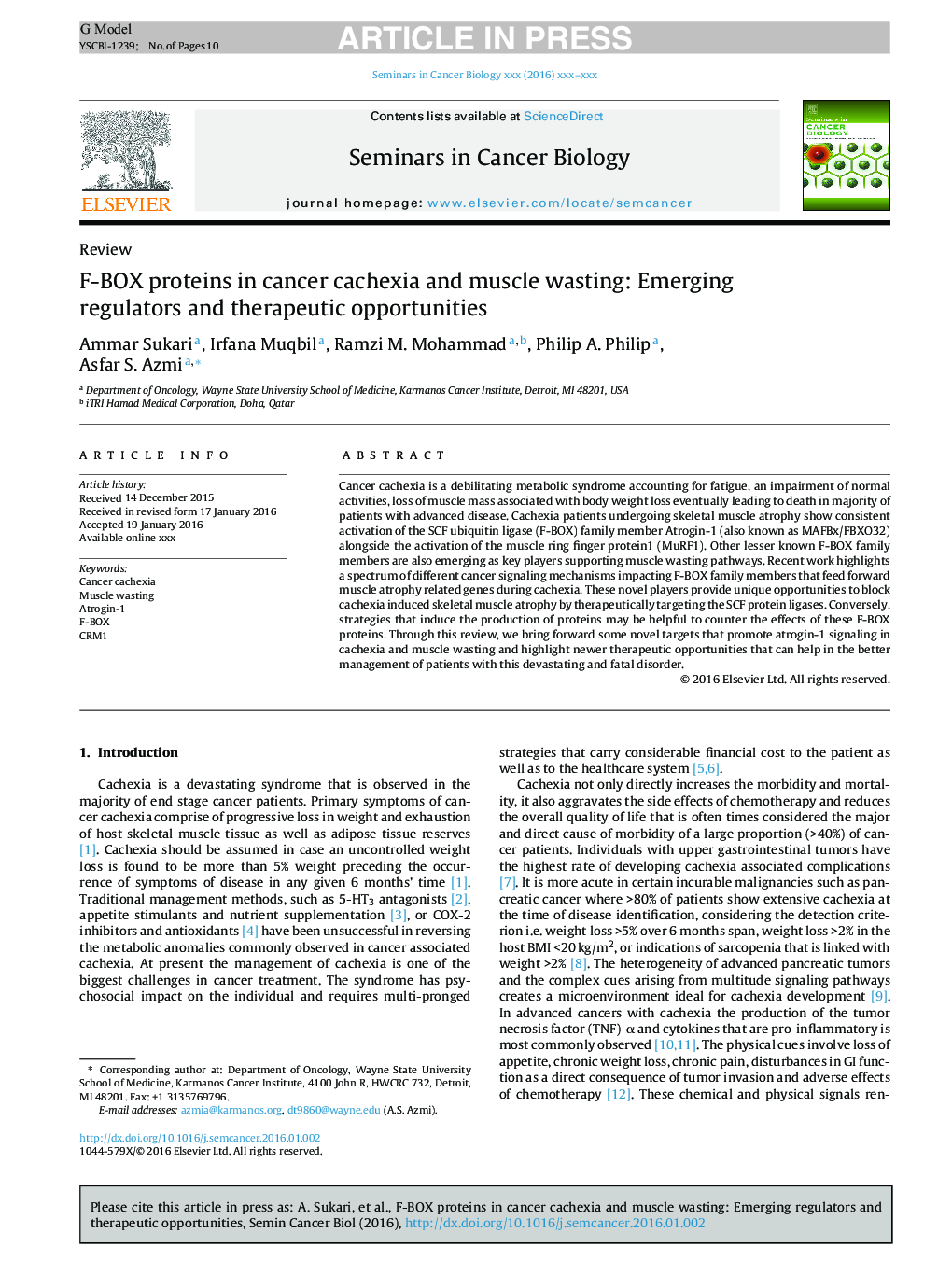| Article ID | Journal | Published Year | Pages | File Type |
|---|---|---|---|---|
| 8362094 | Seminars in Cancer Biology | 2016 | 10 Pages |
Abstract
Cancer cachexia is a debilitating metabolic syndrome accounting for fatigue, an impairment of normal activities, loss of muscle mass associated with body weight loss eventually leading to death in majority of patients with advanced disease. Cachexia patients undergoing skeletal muscle atrophy show consistent activation of the SCF ubiquitin ligase (F-BOX) family member Atrogin-1 (also known as MAFBx/FBXO32) alongside the activation of the muscle ring finger protein1 (MuRF1). Other lesser known F-BOX family members are also emerging as key players supporting muscle wasting pathways. Recent work highlights a spectrum of different cancer signaling mechanisms impacting F-BOX family members that feed forward muscle atrophy related genes during cachexia. These novel players provide unique opportunities to block cachexia induced skeletal muscle atrophy by therapeutically targeting the SCF protein ligases. Conversely, strategies that induce the production of proteins may be helpful to counter the effects of these F-BOX proteins. Through this review, we bring forward some novel targets that promote atrogin-1 signaling in cachexia and muscle wasting and highlight newer therapeutic opportunities that can help in the better management of patients with this devastating and fatal disorder.
Related Topics
Life Sciences
Biochemistry, Genetics and Molecular Biology
Biochemistry
Authors
Ammar Sukari, Irfana Muqbil, Ramzi M. Mohammad, Philip A. Philip, Asfar S. Azmi,
